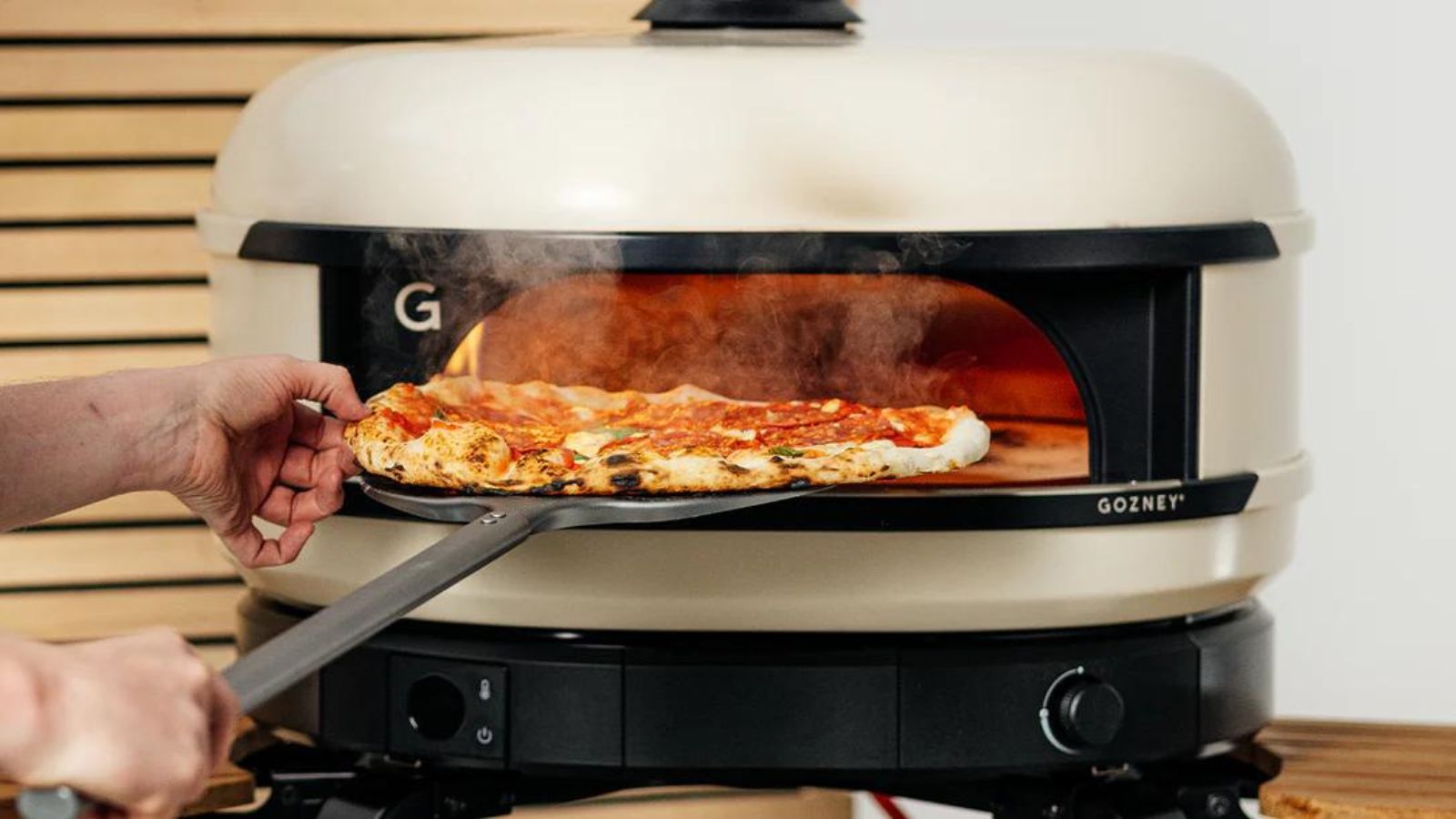
The Gozney Dome S1 has the same sleek, chic look as its predecessor. The primary differences concern fuel and size. Where the Dome could cook with gas and wood, the Dome S1 is gas-only. The Dome S1 is slightly smaller than the Gozney Dome (read our full review in our dedicated feature), but it's $500 cheaper to sweeten the deal.
I put the Gozney Dome S1 through its paces in the back yard. I fed it pizza, calzone, meat and veg in quick succession, keen to see how the oven tackled such diverse foods. I couldn't eat all that pizza on my own, so I called my aunt, uncle, and a few of my cousins to come over and act as taste testers.
What started as a standard test day turned into an impromptu pizza party. The Gozney Dome S1 turned out crispy Neapolitan pizzas as fast as we could make them. Later that evening, the Gozney Dome S1 roasted chicken thighs and charred bell peppers for a succulent tray bake at 750°F. For its versatility, efficiency, and plain old good cooking, the Gozney Dome S1 earns a place in our best pizza ovens pantheon.
Gozney Dome S1 review
If you're keen to experiment with outdoor kitchen ideas, you could incorporate the Gozney Dome S1 into your grill station. Don't worry if you're working with a smaller yard: you can still get in on the action. I'll tell you how to store your Gozney Dome S1 during the al fresco off-season and show you how to clean it for safe and hygienic use.
Gozney Dome S1 Specifications
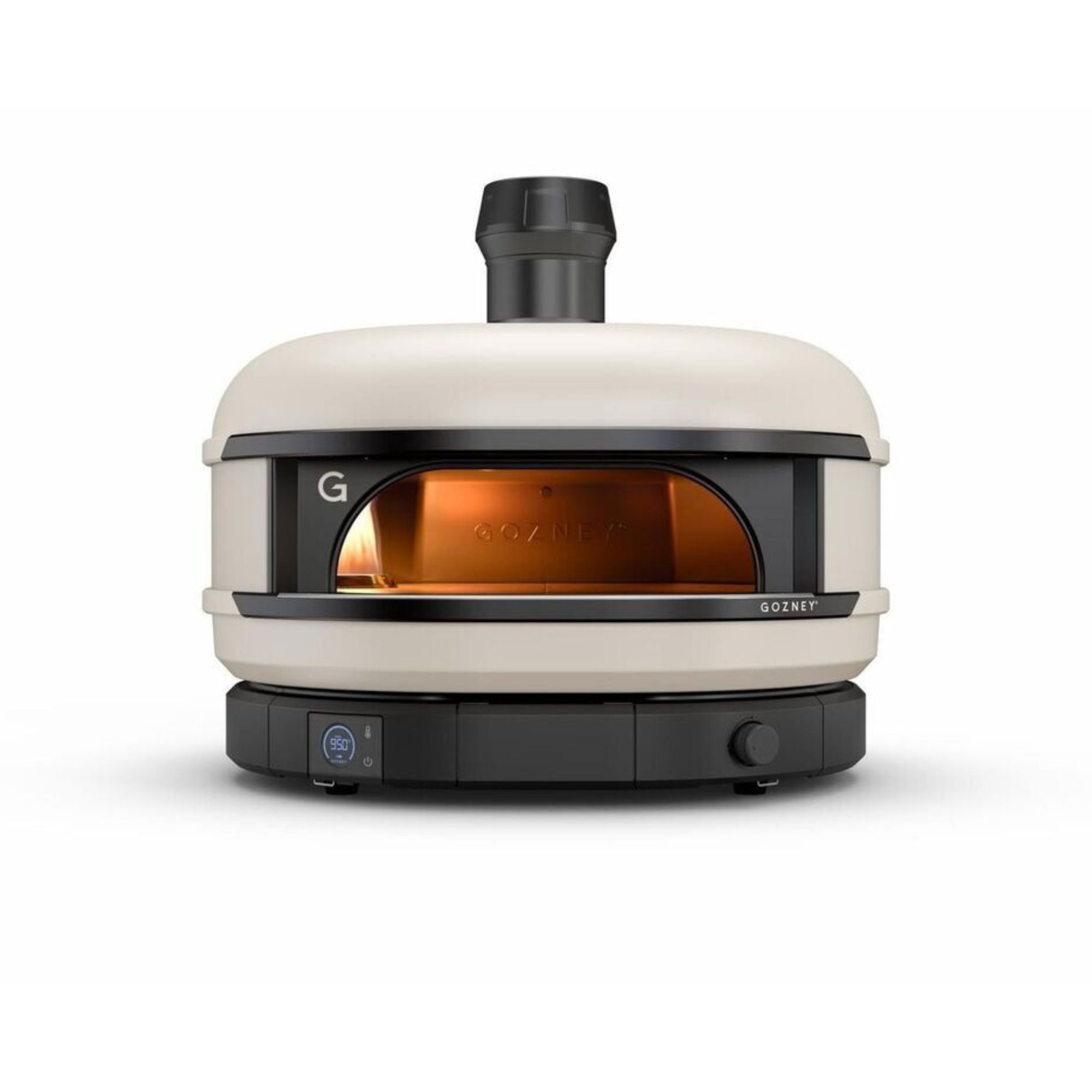
Unboxing the Gozney Dome S1
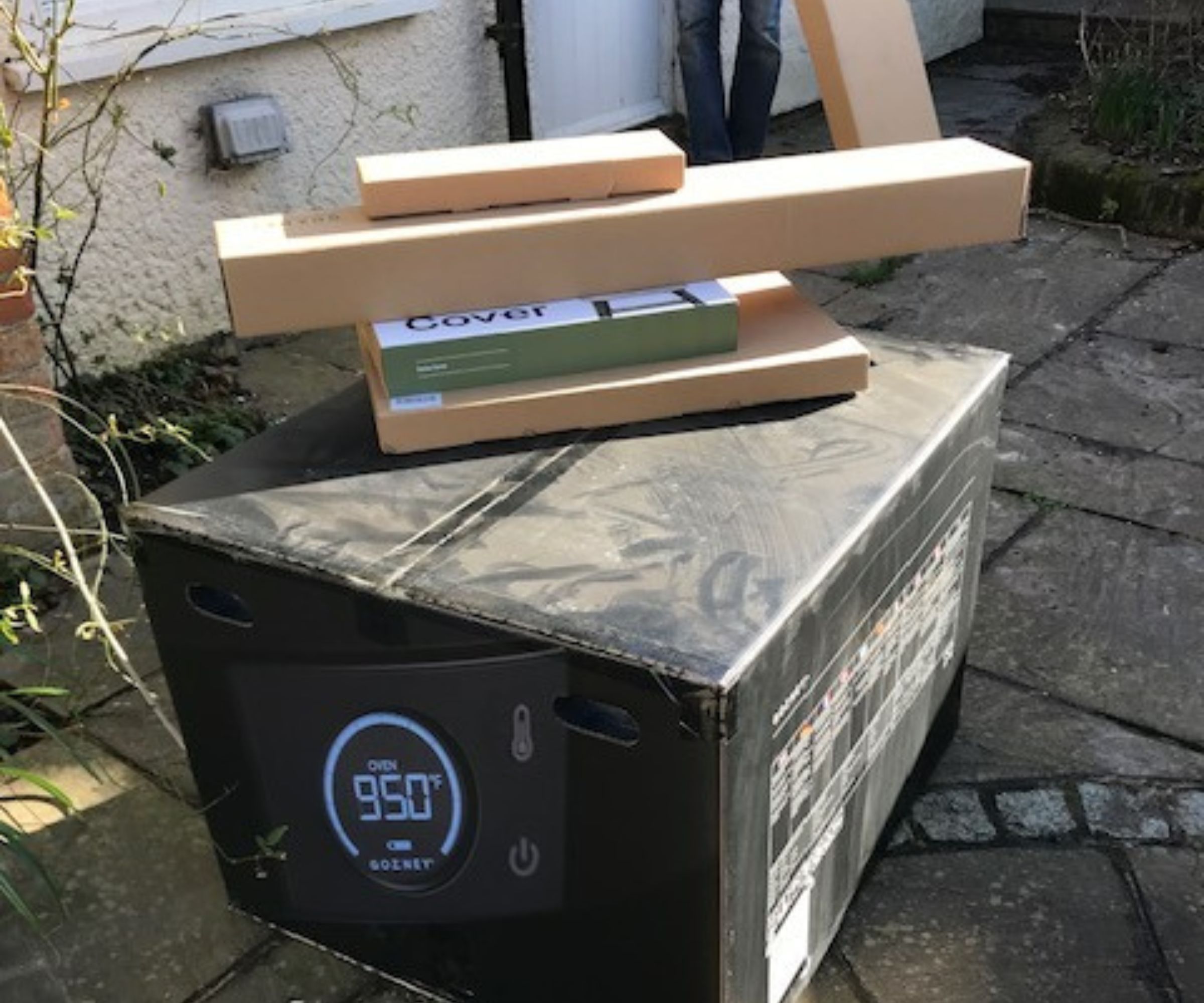
The Gozney Dome S1 arrived in several bits and pieces. There's the oven itself, which comes in its own cardboard box, and then the accessories: a dock to balance the oven on an outdoor kitchen oven or cook stand; a gas hose and regulator; a detachable flue and cap to funnel the smoke; a digital thermometer to monitor internal conditions; and a few tools, such as a wrench and a screwdriver. I wouldn't throw these out, even if you have your own tool box: the screwdriver has a very particular bend that proved invaluable for opening the battery box.
To complete the testing experience, Gozney also sent a Dome Stand and all-weather cover to protect the oven; a pizza rocker to cut the pies; and a pizza platter for presentation. Each of these accessories is available on the Gozney site for an additional fee. I'd say you can skip the rocker and platter if it helps to afford the Dome stand: it's the best way to store your pizza oven in the absence of an outdoor kitchen. When I finished testing the Gozney Dome S1, I simply wheeled the stand back into the garage and covered it up for safe-keeping.
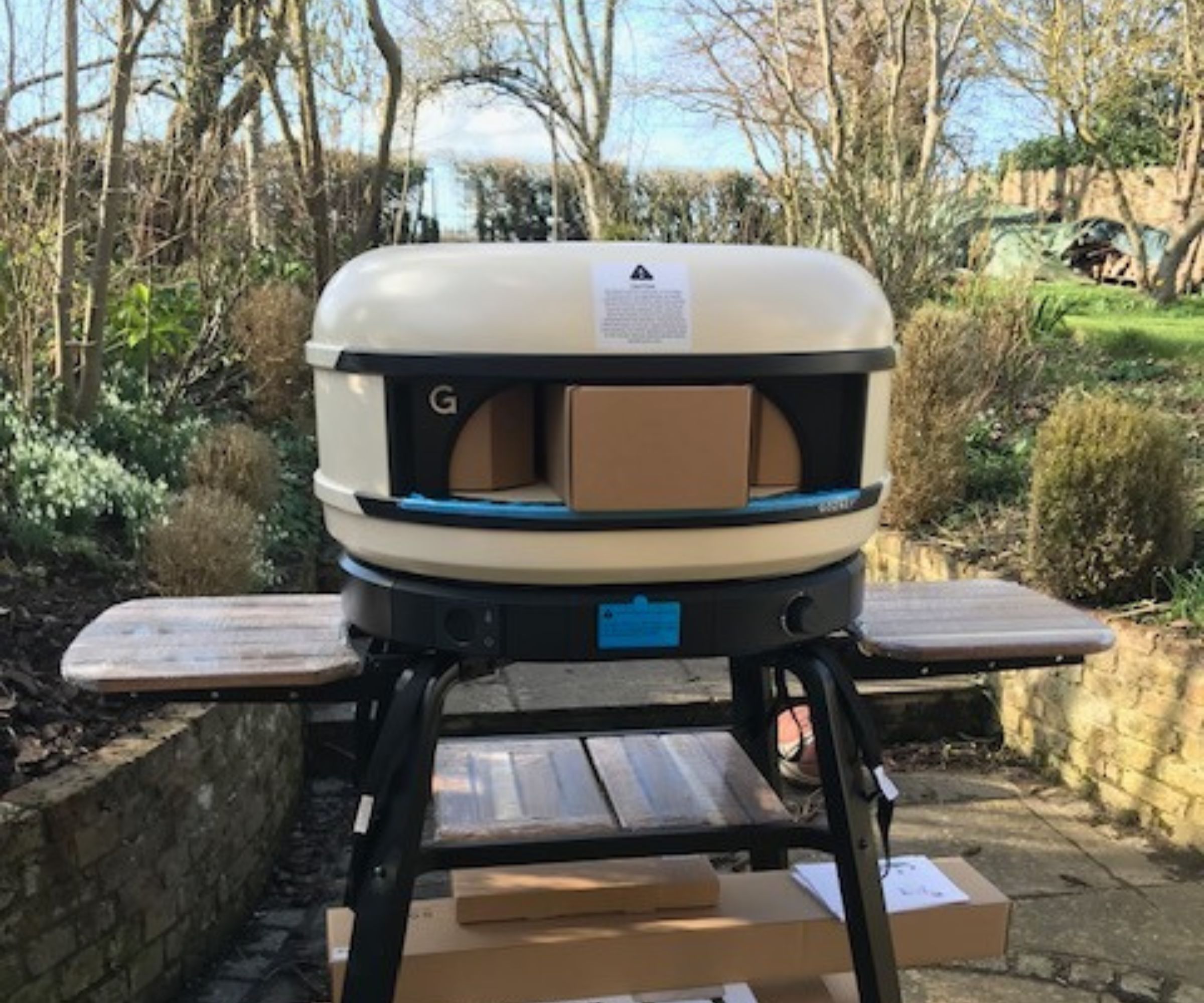
As pizza ovens go, the Gozney Dome S1 is pretty compact. The Dome stand takes up a few feet of vertical space, but the oven itself is neat and narrow. You could easily fit it into smaller outdoor kitchens or nestle it into a nook in your patio. Gozney know how to make the most of smaller spaces: the Dome S1 is fitted with two fold-out wooden tables either side of the oven, and there's additional storage space on open shelves underneath.
You'll find pizza ovens that run on gas, wood, or charcoal fuel: some can run on any of the three. The Gozney Dome S1 exclusively uses gas: all you need to do is plug in your propane and you're good to go. With that said, this pizza oven took a while to ignite. There's a highly sensitive temperature control system: mere millimeters could be the difference between a roaring flame and sputtering gas. I struggled to understand some of the instructions in the Gozney Dome S1 technical manual, but got there in the end through trial and error.
Test 1: Pizza
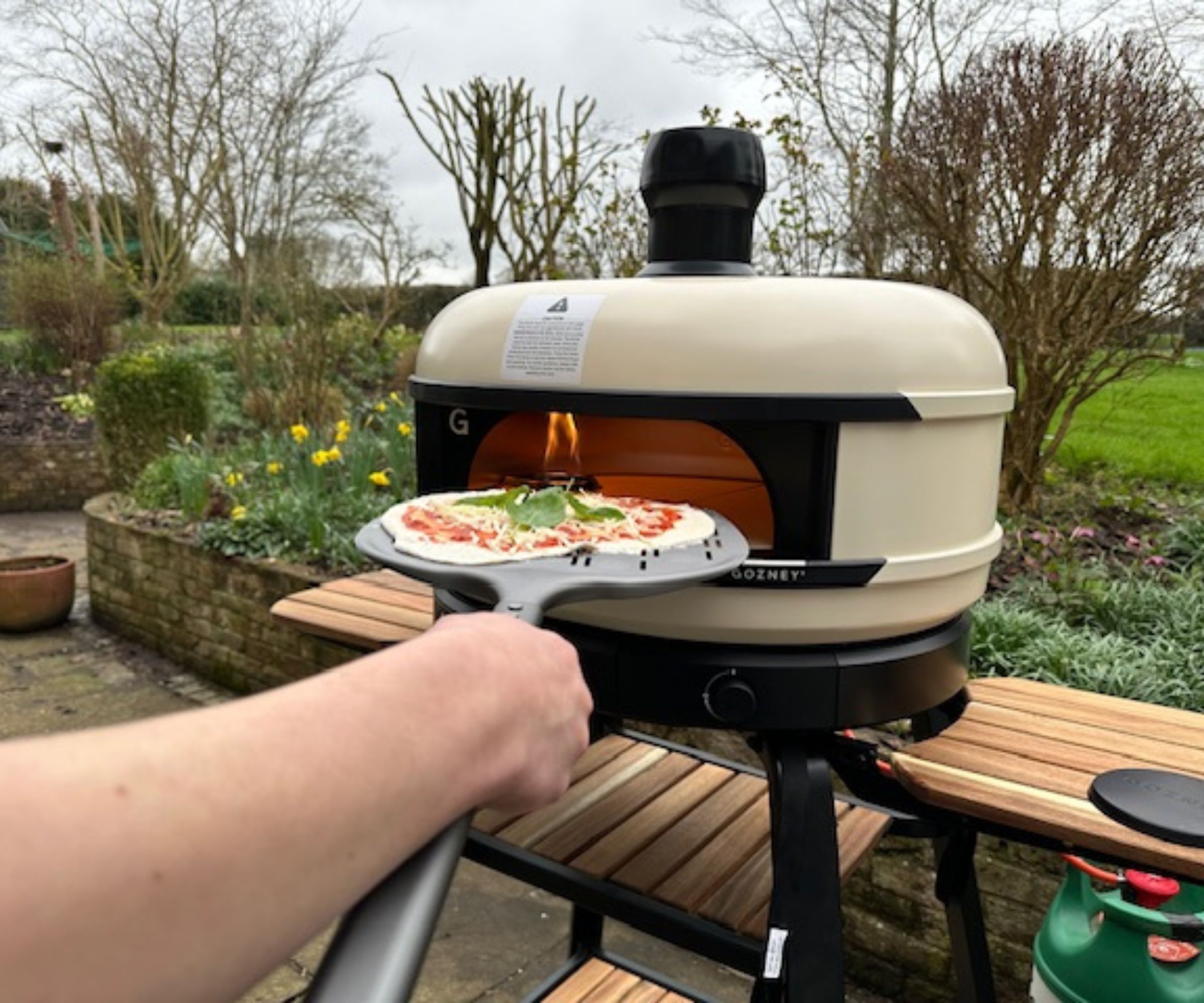
I decided to start with a simple cheese and tomato pizza. Not just because it's my favorite, but because it's the best way to see how an oven handles wet and dry ingredients. Plus, it's probably the first pizza you'll make at a party, and an easy one to knock up for the kids on a weeknight.
Gozney recommends curing your oven for 30 minutes before you cook your first ever pie, so that you can burn off any dirt and debris that might have built up in the box. I ignited the flame and set the oven to burn on a medium heat while I prepared the pizza. I stretched out my dough, spooned out my pizza sauce, and sprinkled a generous serving of shredded mozzarella over the base. I topped it all off with a few basil leaves.
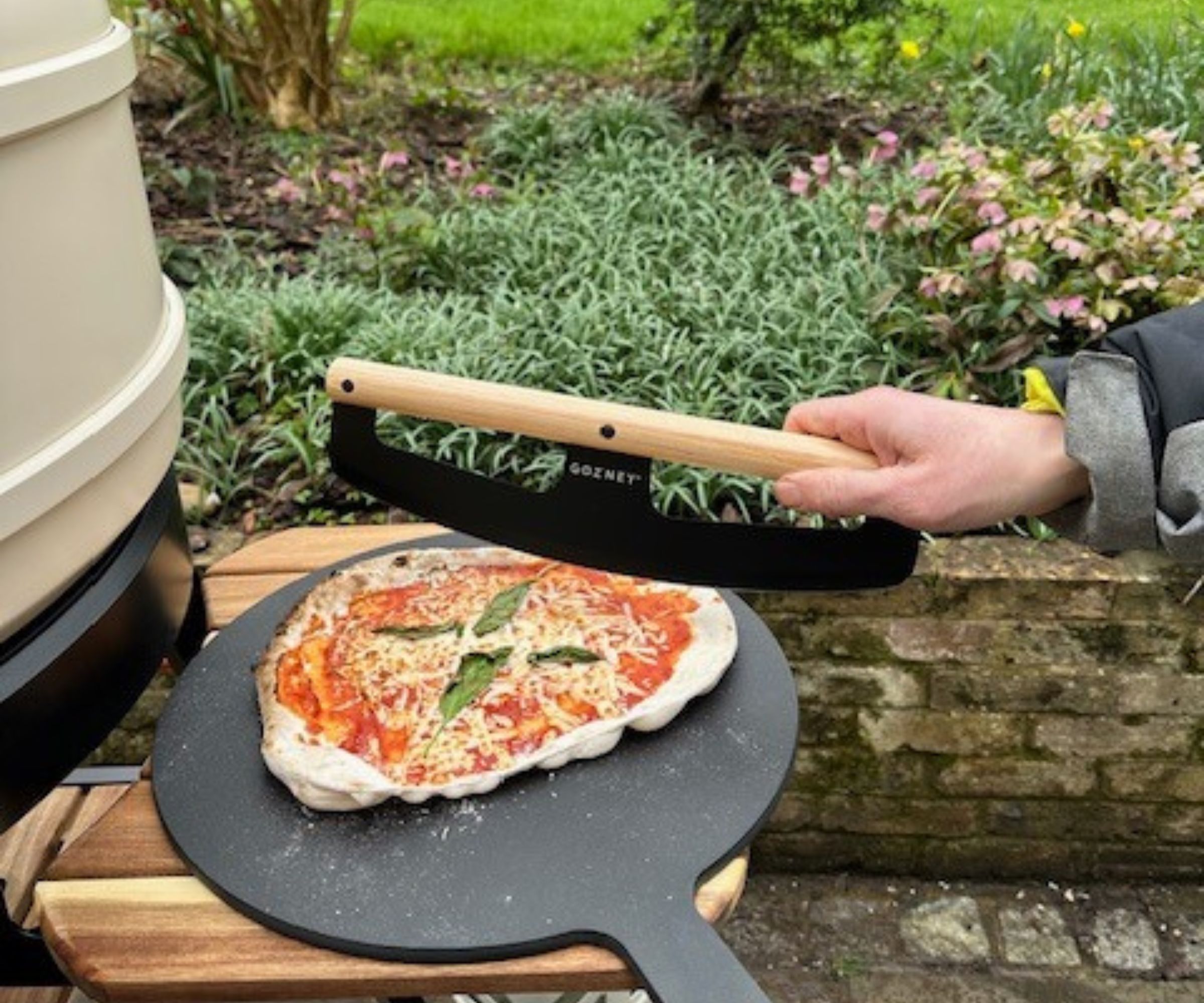
I used the Gozney Placement Peel to scoop up my pizza and carry it from the kitchen to the back yard. For me, that's a distance of a few steps: if the rooms were further apart, I would used those fold-out tables to prep the pizza. I launched the pie towards the back of the oven and adjusted the gas to a medium-high heat, around 750°F: you want it hot to crisp the dough and melt the cheese.
I'd heard that the Gozney Dome S1 could produce the perfect pizza in 60 seconds, so it wasn't long before I removed the pie from the oven and plated it on the Gozney Pizza Server. I cut a slice and tucked it in. The dough was almost there − another 10 seconds would have crisped it up nicely – but the cheese and tomato had melted and melded beautifully.
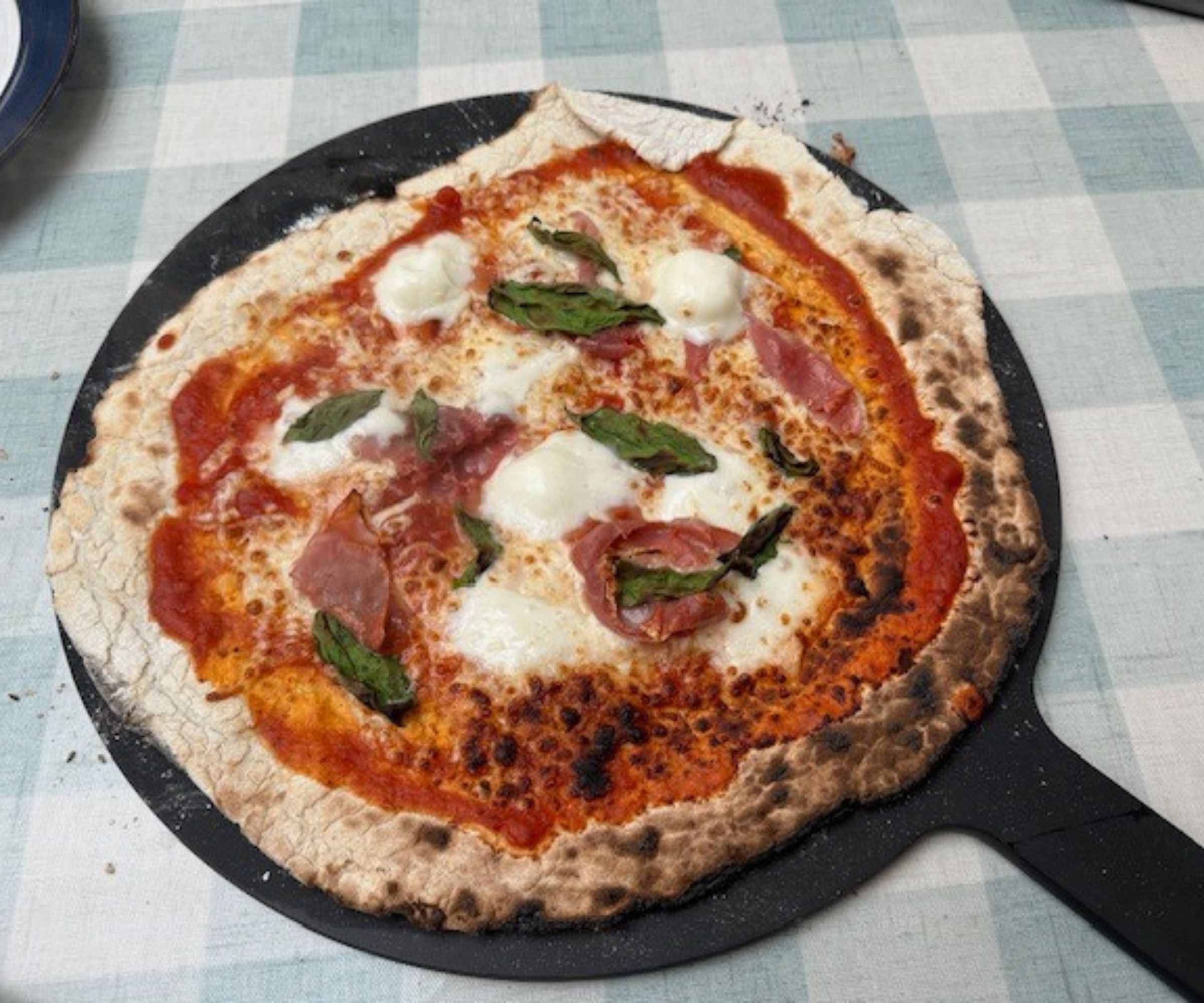
Since I had the ingredients, and several chefs at my disposal, I decided to produce a few more pies. Together, we made vegetarian pizzas with ricotta and bell peppers; pepperoni pizzas with a few salami slices for good measure; and a few mini garlic breads with fresh pesto. By the sixth or seventh pie, we'd got it down to a fine art. By my count, the Gozney Dome S1 takes 70 seconds to make the perfect pizza. That's no time at all, especially when you consider that you can load the oven with several pies at the same time.
Test 2: Calzone
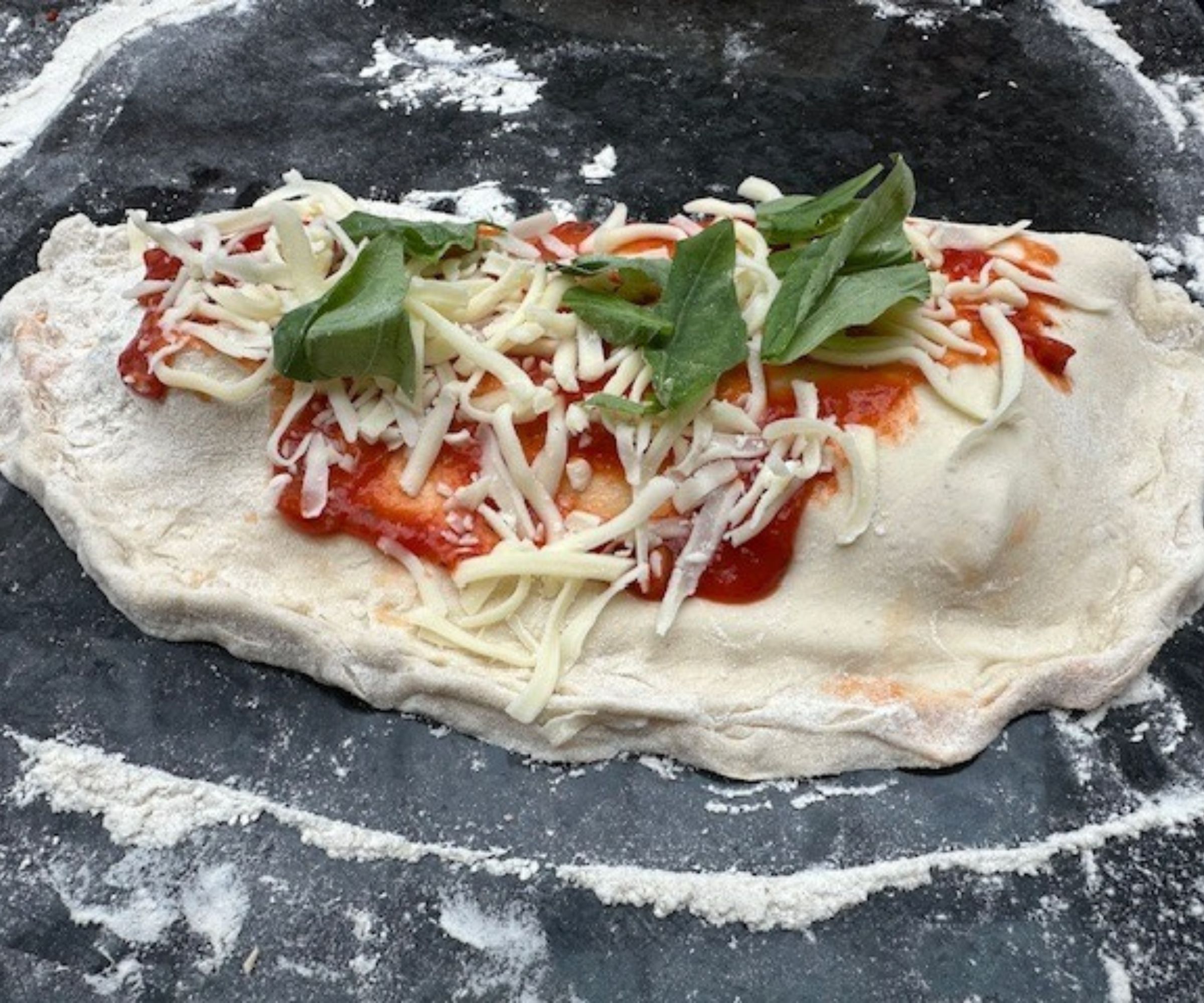
Feeling emboldened by the success of our pizza test, we decided to try Gozney's Neapolitan Calzone recipe. I was keen to see how the dough puffed up under pressure and whether the interior ingredients could cook at the same rate as the toppings.
I opened out my dough and spooned some ricotta onto one side of the base. Then, I threw in all the leftover pizza toppings I wanted to use up: strips of salami; chunks of mozzarella; and basil leaves. I folded the dough to form a semi-circle and pinched the sides together to form a crust. I spread a few spoonfuls of pizza sauce across the top of the calzone and sprinkled over a little more mozzarella.
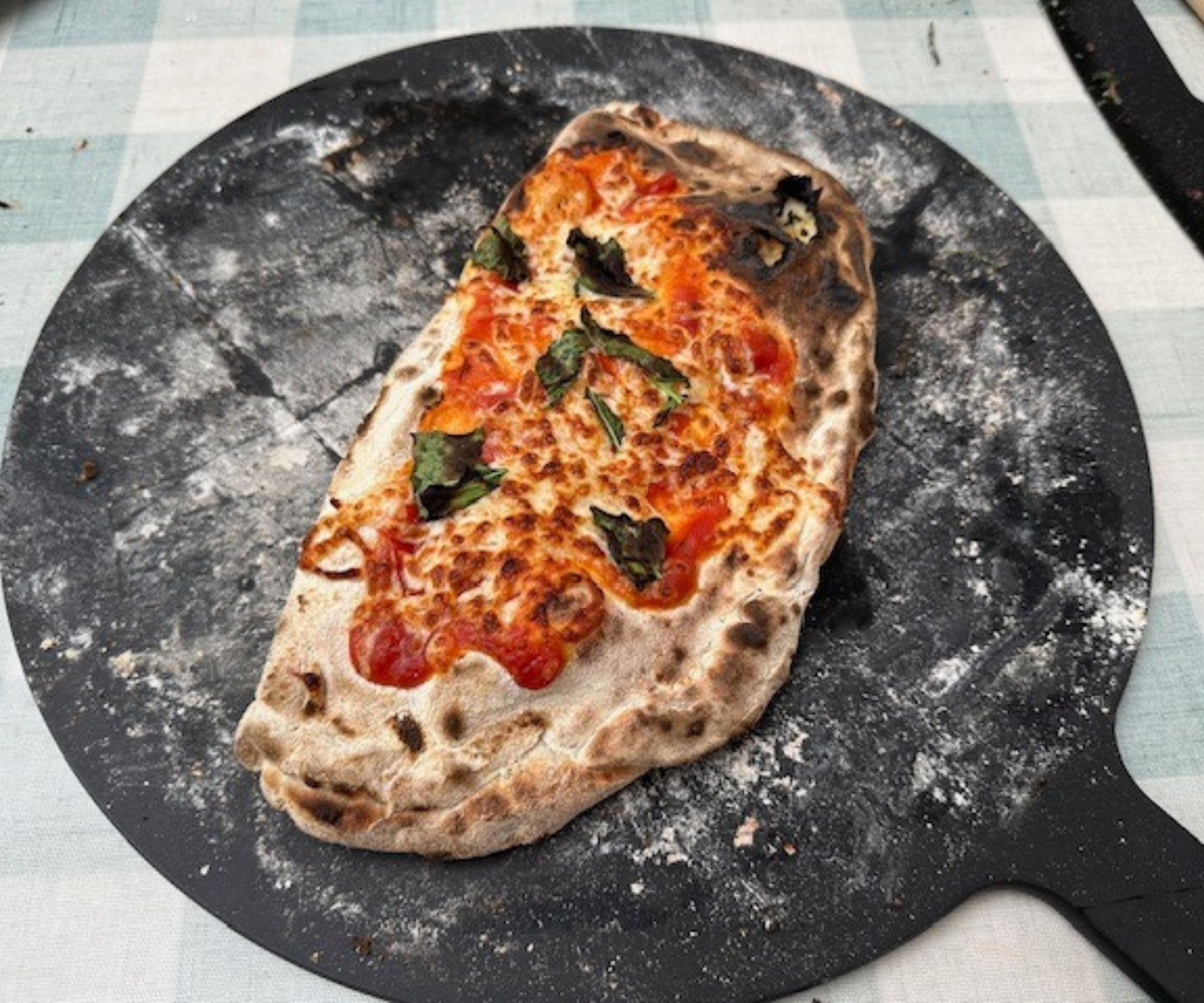
I turned down the gas to cook the calzone at a slightly lower temperature of 650°F before launching the calzone to the back of the Gozney Dome S1. Every minute or so, I rotated the calzone inside the oven to promote even cooking.
Four minutes later, we'd made a calzone to rival any restaurant. The dough was baked and nicely browned around the edges, while the cheese inside had melted and made satisfying strings as we bit into the calzone. If you like, you could finish with a little more hard cheese and a splash of oil, but the calzone should taste just as good straight out of the oven.
Test 3: Bell peppers
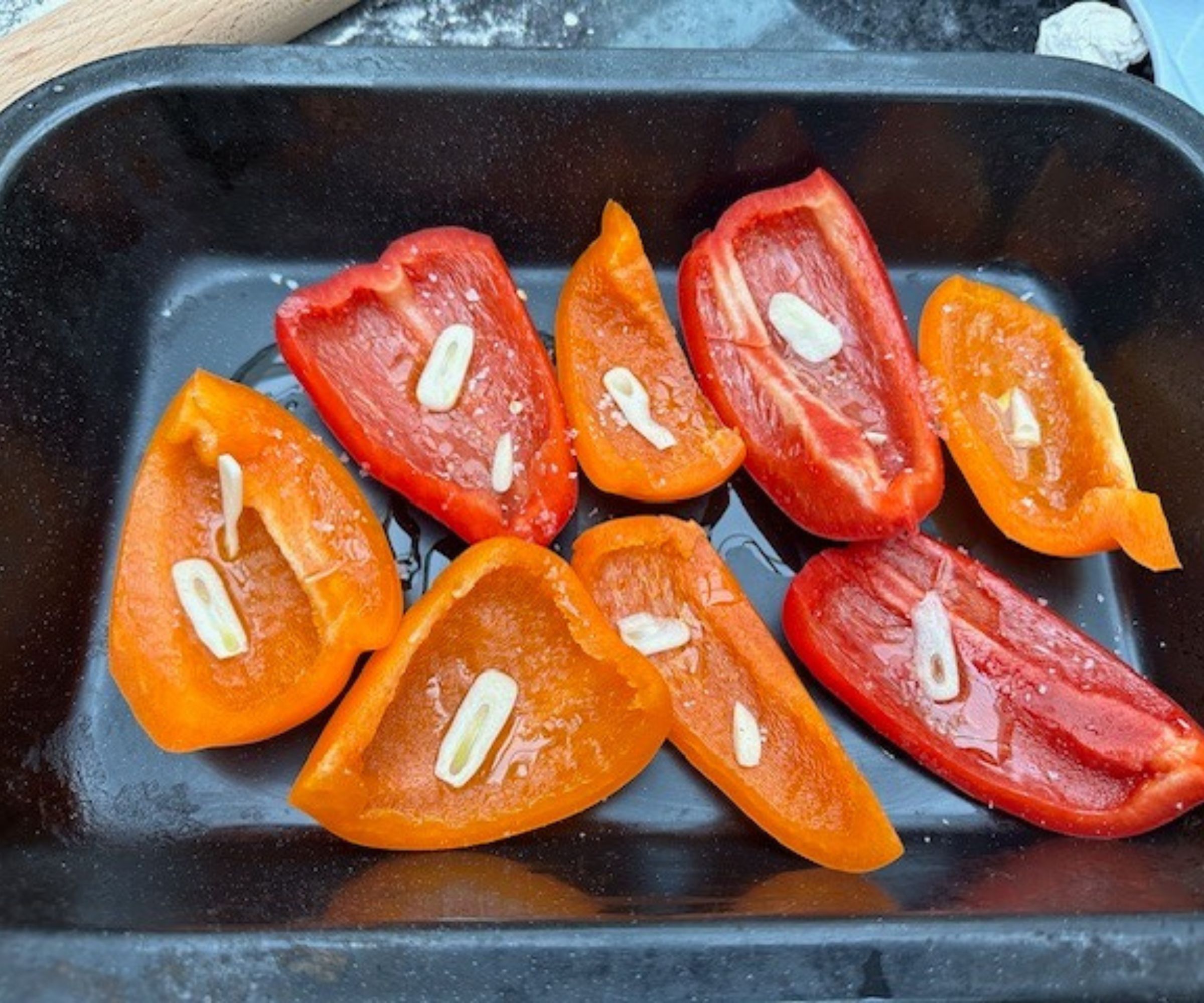
The Gozney Dome S1 can handle a whole lot more than just pizza. I like to think of it as an all-purpose outdoor oven. Their online recipe guide shows you how to make seafood paella, pork schnitzel, and peanut butter brownies, all in one oven (though not at the same time). I wanted to see how the Gozney Dome S1 tackled fresher textures, so I decided to roast some bell peppers.
I cut my peppers into quarters and drizzled them with olive oil to retain their moisture. I sliced a few garlic cloves into strips and nestled them inside each pepper for flavor. I threw everything into a cast iron pan to withstand the heat from the Gozney Dome S1. If I had been searing a steak, I might have wanted a cast iron grill pan to make those attractive char marks, such as the Le Creuset Signature Square Skillet Grill, but a cast iron baking tray proved more than sufficient for peppers.
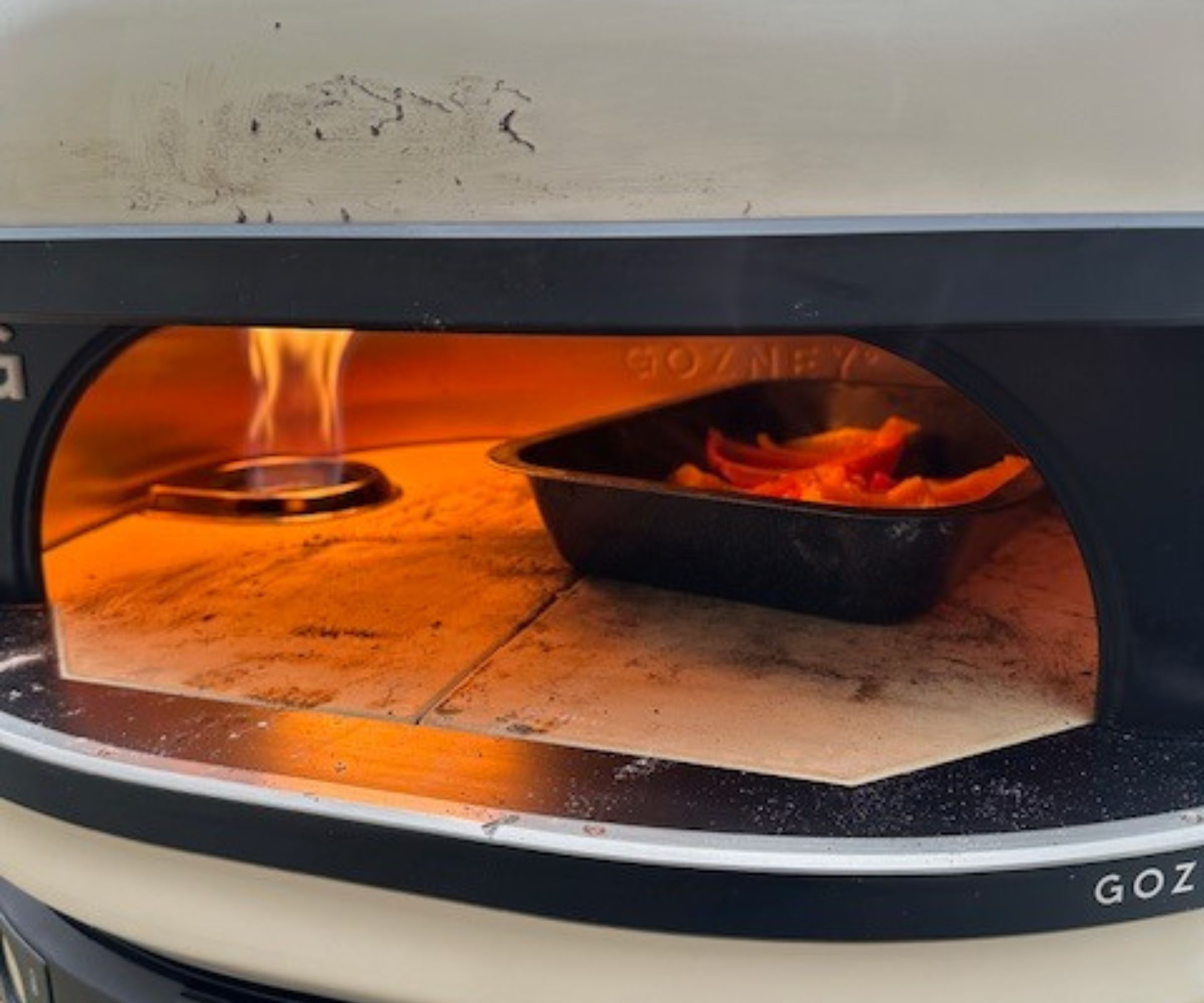
I kept the peppers cooking at around 650°F for three or four minutes. When it comes to cooking, it's always better to use your eyes and trust your instincts than to live and die by the digital thermometer. The first time I pulled out my peppers, they didn't look quite done, so I used the placement peel to nudge them under the flame for another 30 seconds.
When they came out, the peppers were glistening in olive oil, nice and crunchy on the outside with plenty of juice within. I only allowed myself one pepper before I got started on the second part of this unconventional tray bake: the chicken thighs.
Test 4: Chicken thighs
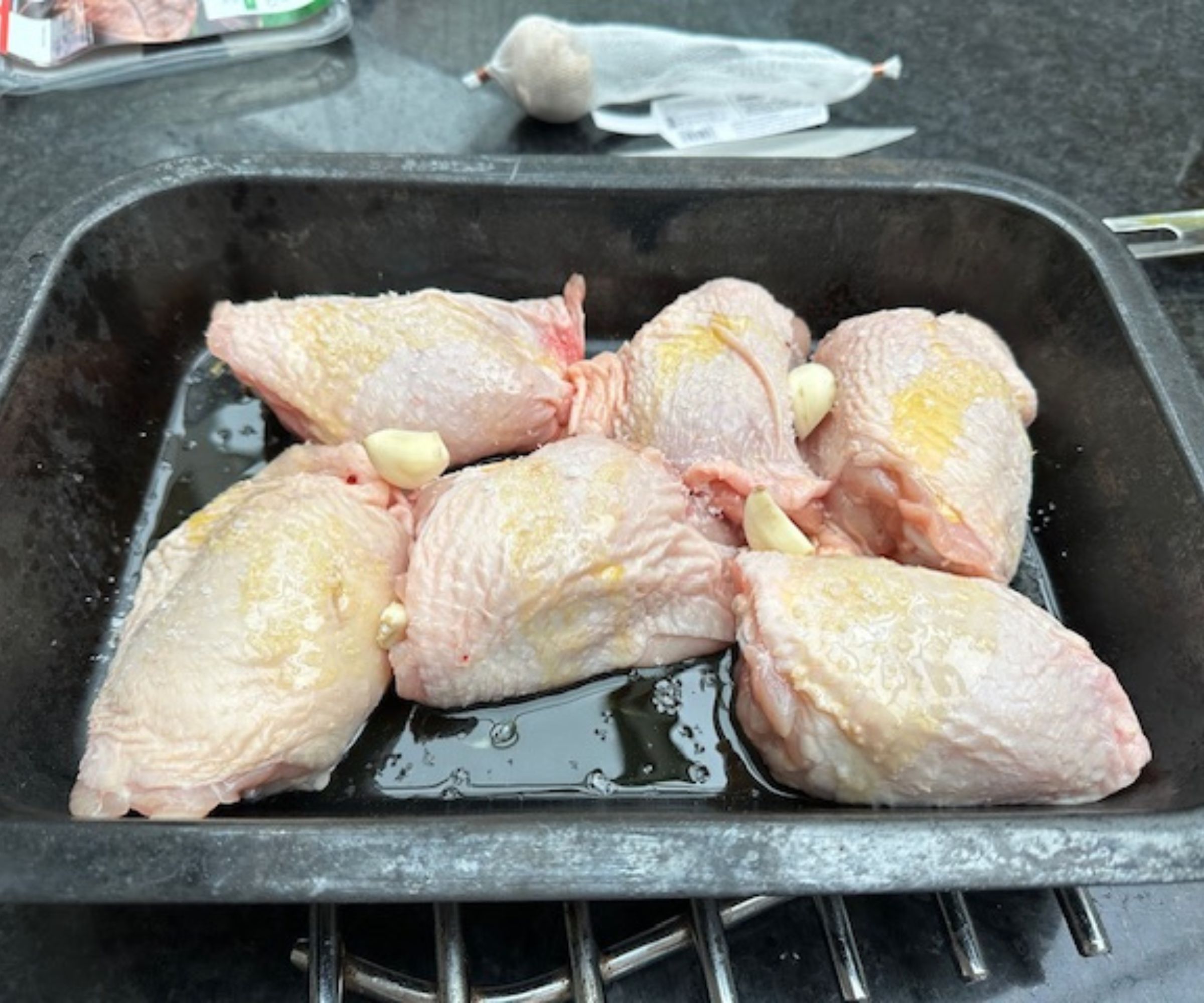
Pizzas and peppers are easy to cook: chicken requires a little more forethought. I wanted the skin on my chicken thighs to go crispy and crunchy, while the meat inside stayed tender and juicy. In terms of seasoning, I kept it simple. I drizzled each thigh in extra virgin olive oil and sprinkled them with salt: no pepper, since it would just burn under such high heat. I popped in a few whole garlic cloves for depth of flavor.
I transferred my chicken thighs to the same cast iron pan I'd used for my peppers, so that they could soak up more of that garlicky goodness. I used the placement peel to lift and launch the pan inside the Gozney Dome S1. An hour into testing and a few dishes down, I was feeling incredibly confident using the oven. Once you've hooked up your gas and got to grips with the dials, it's really quite simple. I'd recommend the Gozney Dome S1 for beginners just as much as experienced outdoor chefs.
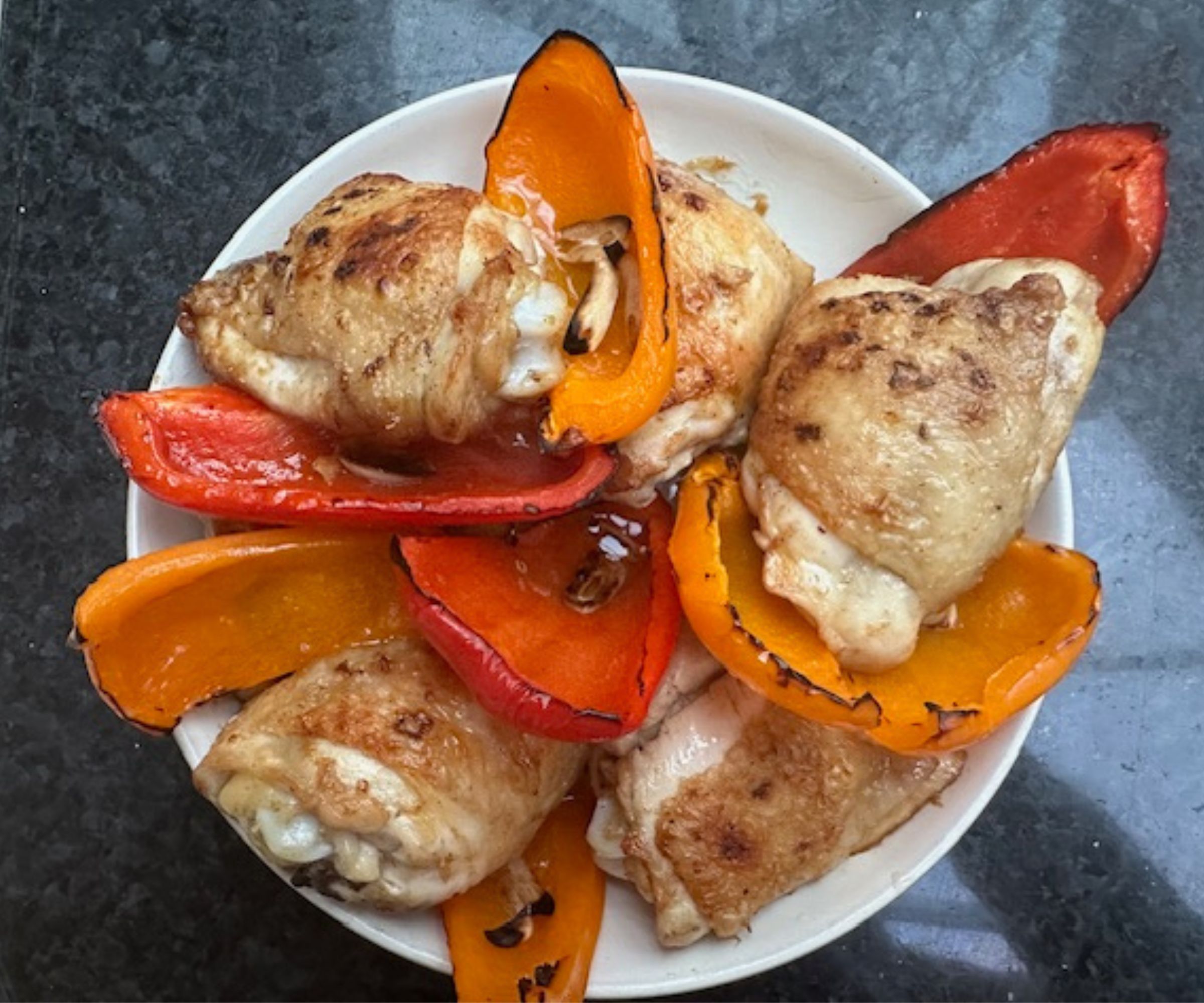
A few minutes into cooking, we had a minor incident inside the oven. The gas flame came a little too close to the olive oil and set it alight. Something similar happened during my first pizza oven test, and I totally freaked out: now, I knew what to do. I used the back of the placement peel to stamp out the flame and moved the cast iron pan towards the other side of the oven. This sort of thing is par for the course when you're cooking with oil at high heats and it made no difference to the final taste test. The chicken thighs were absolutely delicious: the best thing I'd eaten all day.
Cleaning the Gozney Dome S1
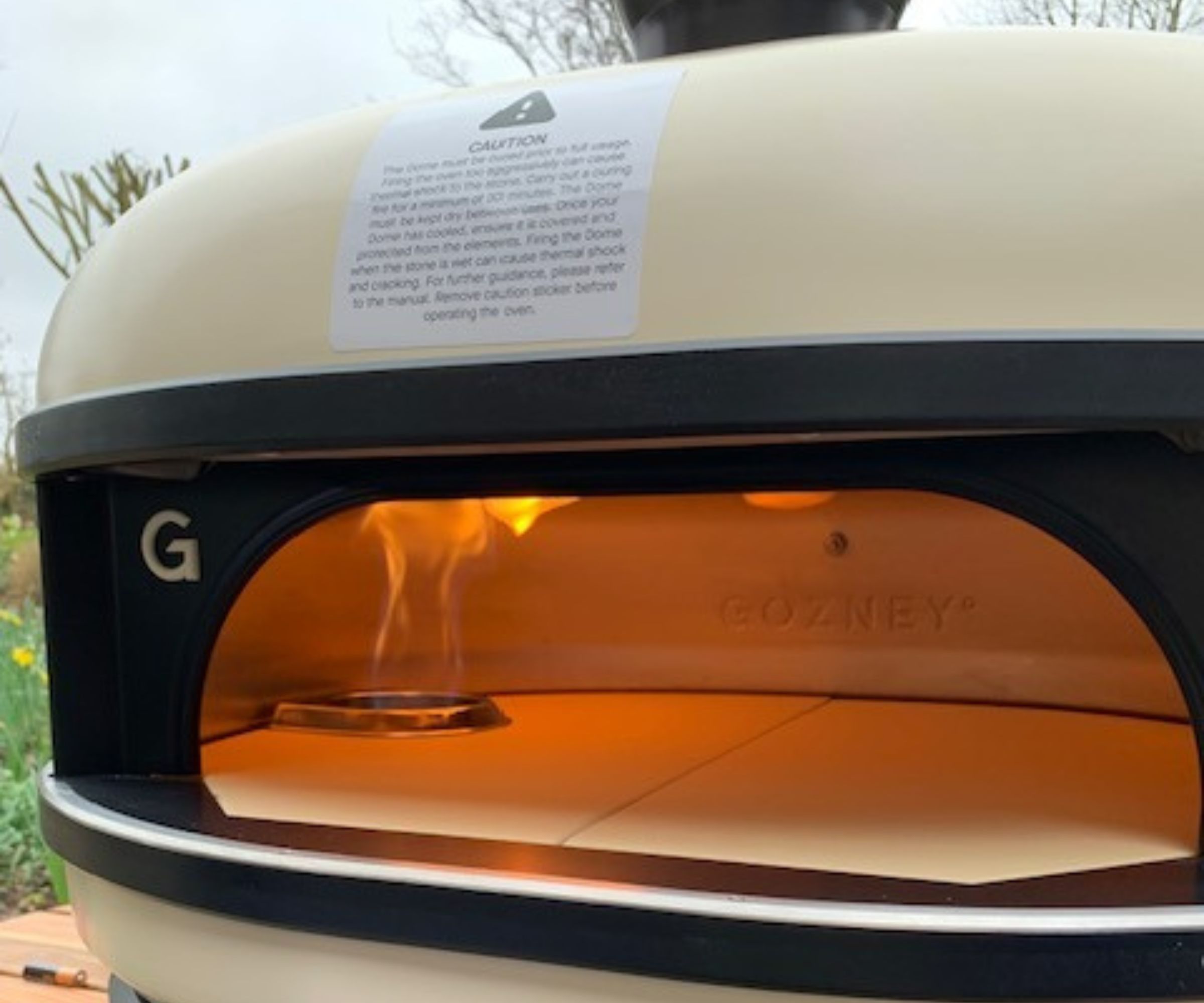
There are a few different parts to the Gozney Dome S1, each of which requires different levels of maintenance. The body of the machine is easy to clean: all it needs is a quick wipe with a damp cloth. It might sound obvious, but it bears repeating: the outside of the oven will heat up as it cooks. I recommend switching off the gas and letting your oven cool for a few minutes before you start to clean.
Then, there's the pizza stone inside the oven. As you cook pizzas, one after the other, you'll find that specks of dough and bits of flour get stuck on the stone. The best way to clean it is to burn off all that dirt and debris. For a deeper clean, you should let the stone cool, then wet it with hot water and scrub. You won't need soap, just a tough bristled brush, such as the Cuisinart CCB-399 Pizza Stone Cleaning Brush. All that's left to do is wipe down the stone and leave it to air dry.
How does the Gozney Dome S1 rate online?
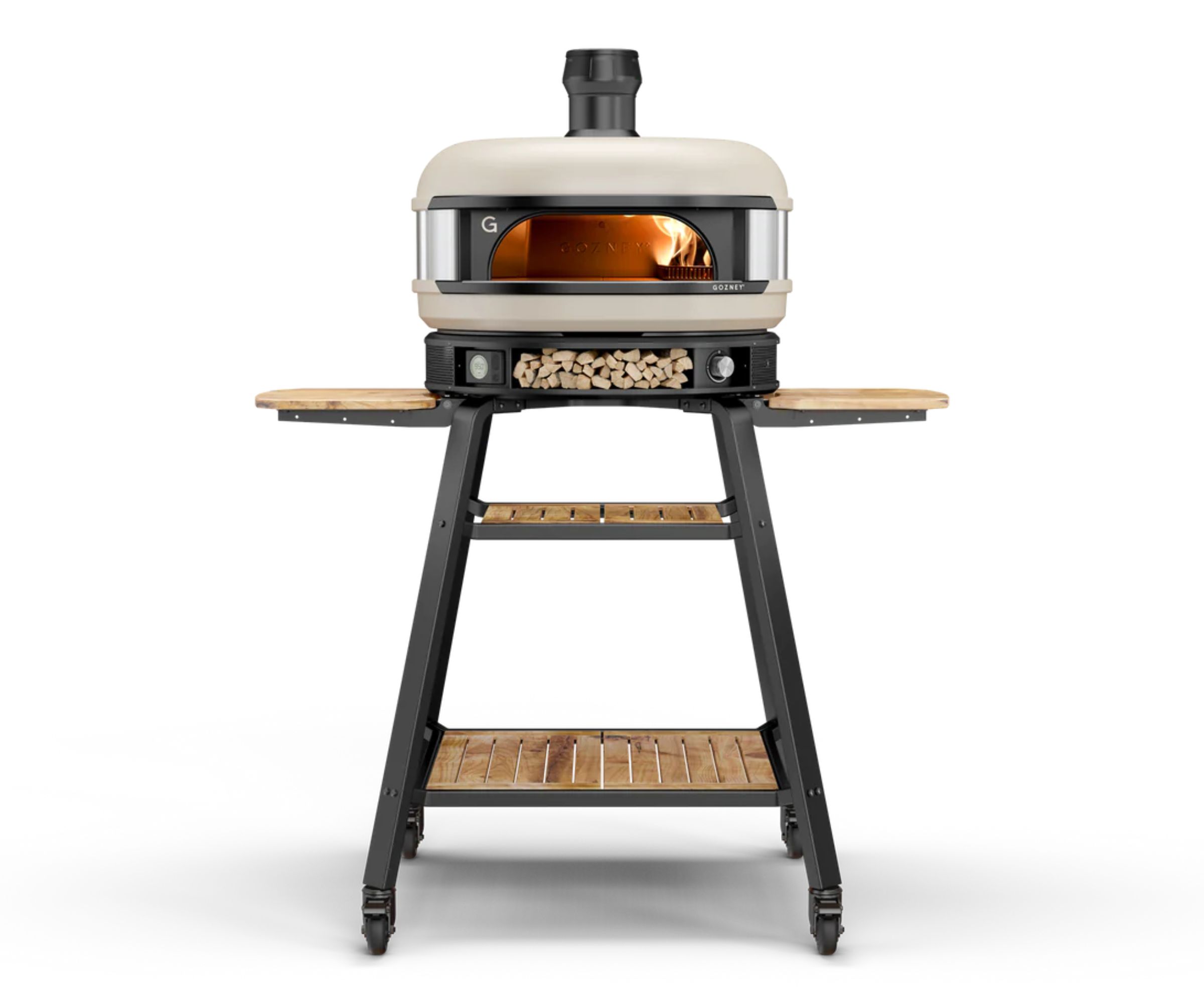
The Gozney Dome S1 is still pretty new to the market. So far, there are a smattering of reviews on Trustpilot, most of which feature five-star ratings. Customers praise the speed of cooking and depth of flavor, as well as the attractive appearance. This pizza oven isn't an eyesore: it's the sort of thing you could integrate into an outdoor kitchen or leave to stand alone on a patio or porch.
There are a few more mixed reviews, though so far nothing lower than three stars. These customers note the sensitivity of the control system, which takes a while to understand. Although the Gozney Dome S1 is on the more expensive side, your money goes a long way when you consider all the accessories you get upon purchase, from the dock to the detachable flue.
How does the Gozney Dome S1 compare to other pizza ovens?
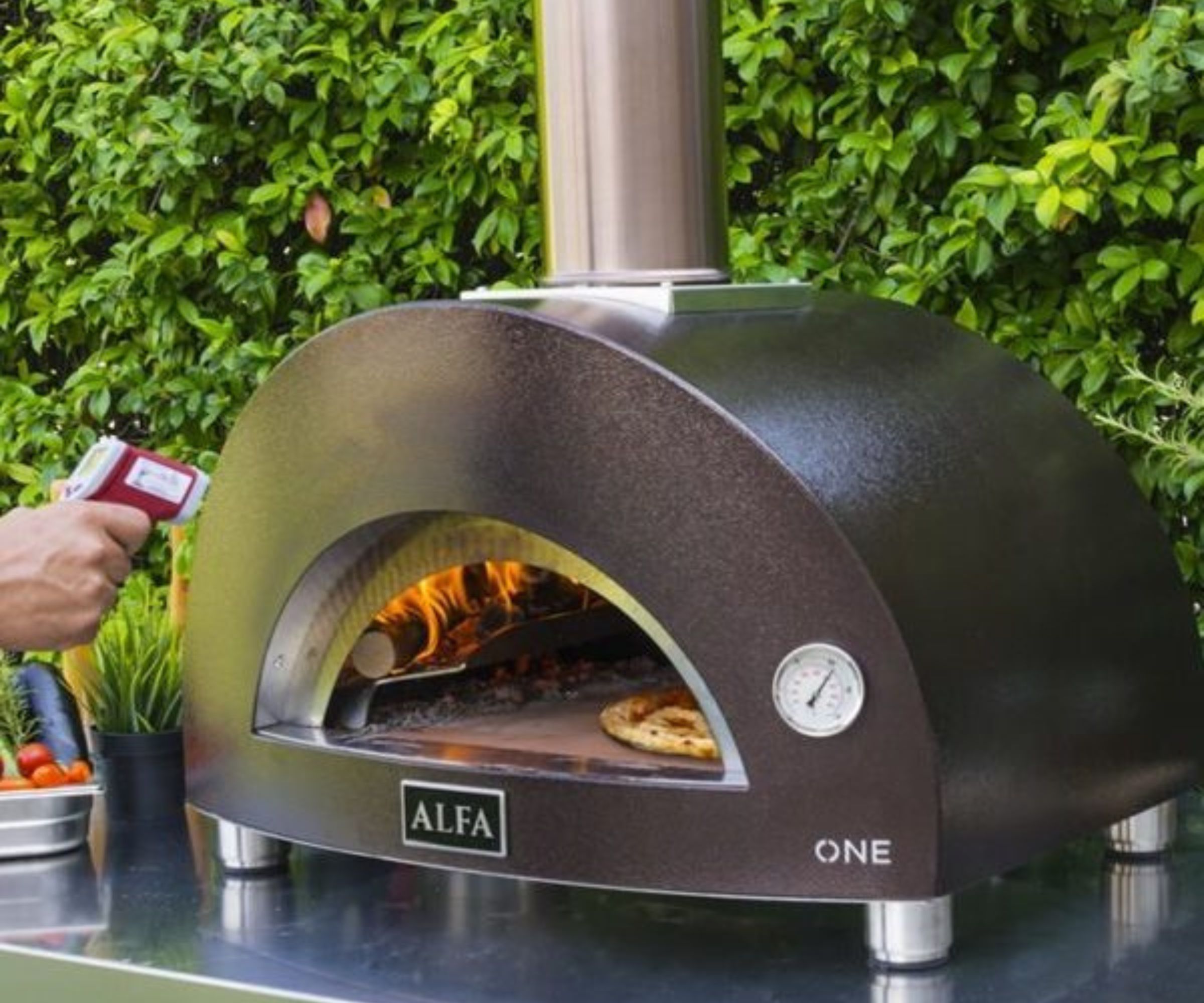
I love the Gozney Dome S1, but it might not suit every situation. For one thing, you can't use it without gas. If you'd rather chop and change between gas, wood, and charcoal fuel, do it with the Ooni Karu 16. This pizza oven is the real deal: in fact, it's the first to be recommended for domestic use by the Associazione Verace Pizza Napoletana, the international experts on Neapolitan pizza.
If you live in an apartment, or you simply don't have room for a pizza oven in your back yard, then you'll appreciate the pint-sized Breville Smart Oven Pizzaiolo. This countertop oven is certified safe for indoor use. It reaches blistering temperatures of 750°F and even achieves that leopard-spotted look you only get from wood-burners.
Ask any pizza-lover, and they'll tell you they'd love their own pizza oven: but they might not feel able to afford one. If you're working with a tighter budget, your best bet is the Woody Pizza Oven Kit. This affordable oven offers excellent heat retention for a fraction of the price of the Gozney Dome S1.
Should I buy the Gozney Dome S1?
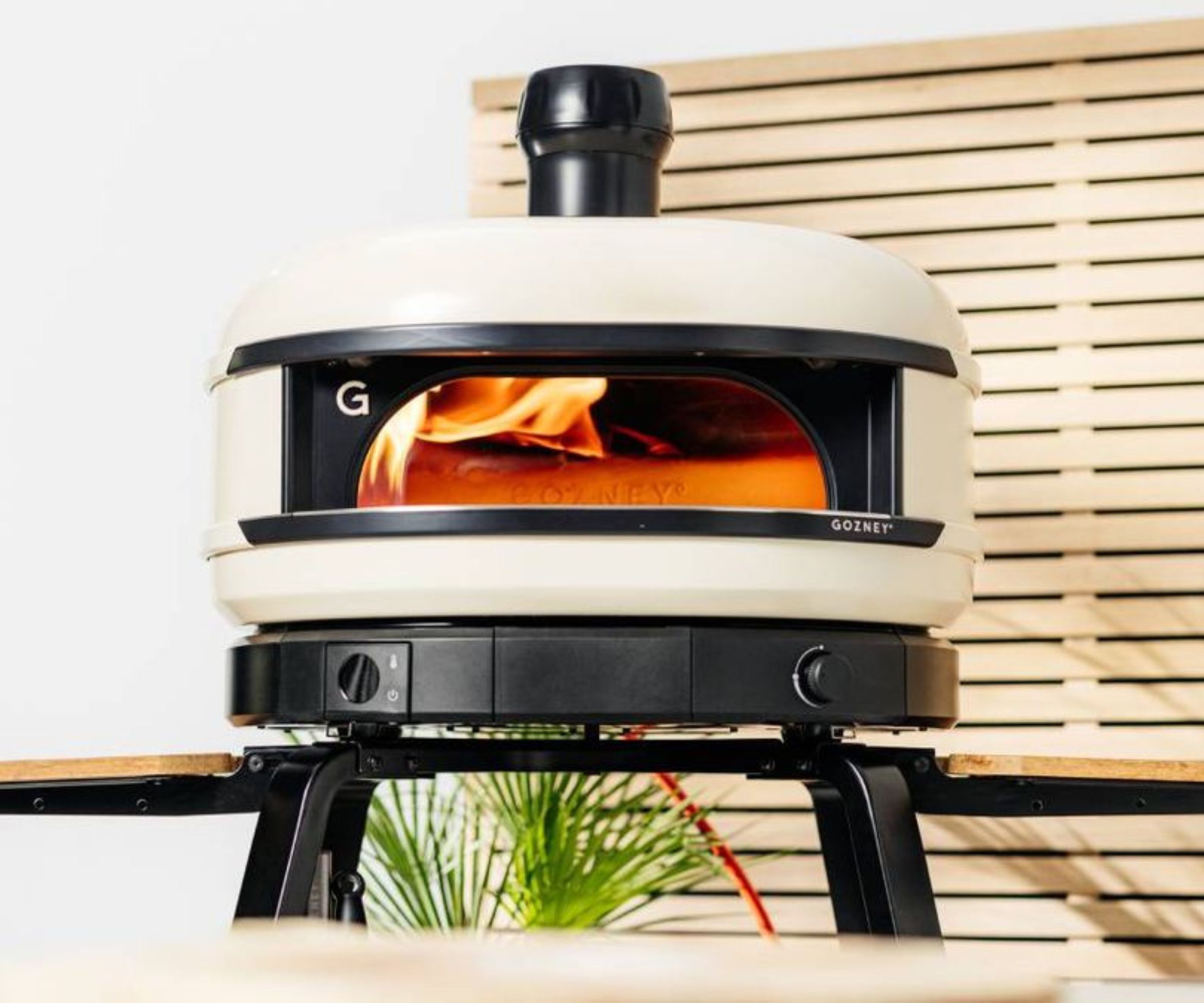
The Gozney Dome S1 retails for around $1,650. Don't get me wrong: that's a lot of money to spend at once, but it feels like a fair price to pay for such an excellent oven. You'll get so much use out of the Gozney Dome S1. I can see myself firing up at least once a week to make a lot more than just pizza: you could roast a chicken or bake a birthday cake in this thing. The Gozney Dome S1 would make a great addition to a summer cook-out but it's safe for use all year round, and it warmed me right up on a cold winter morning.
How we test pizza ovens
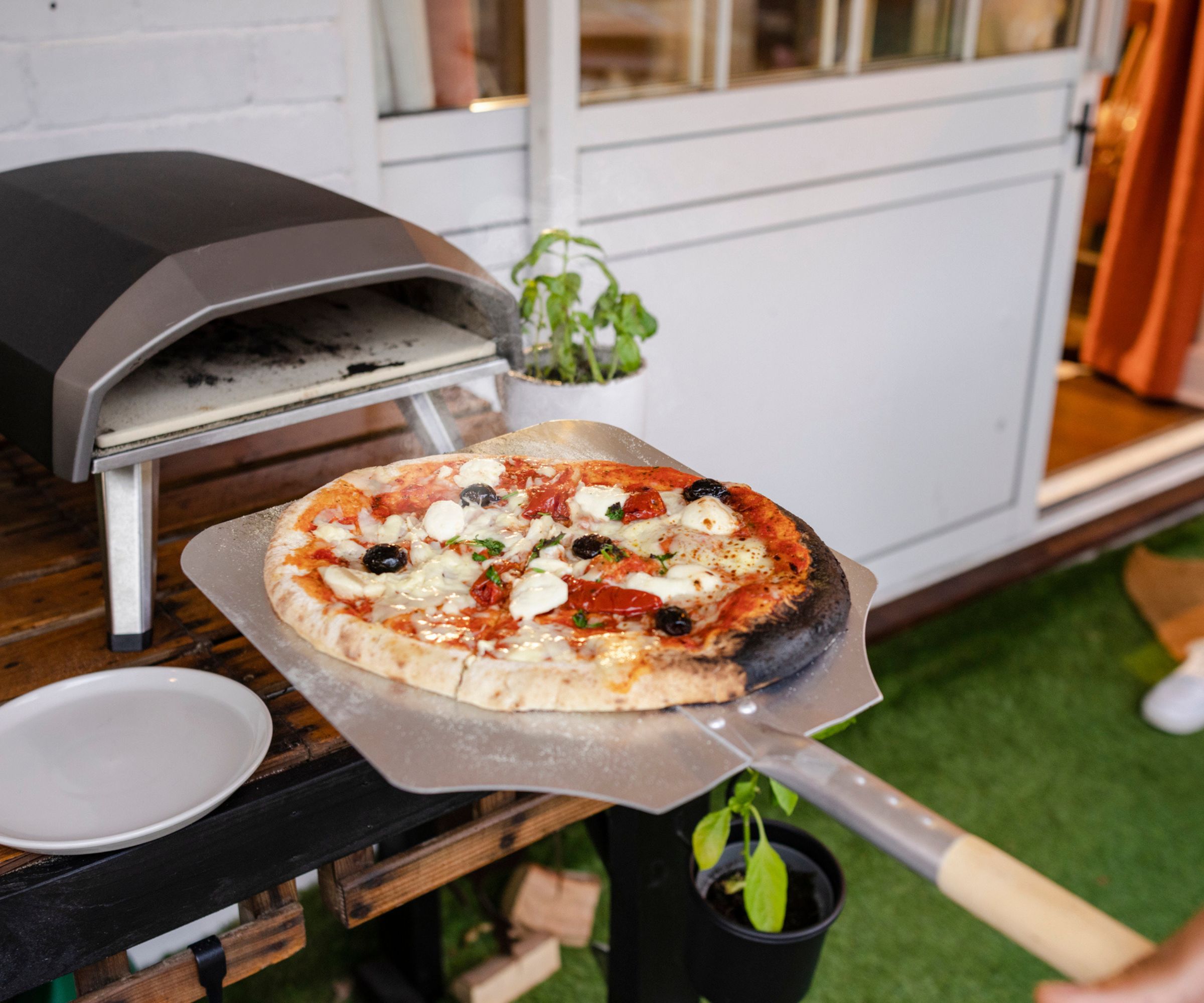
We put a lot of thought into how we test pizza ovens: our test days involve a lot more than a dinner party. We use a mixture of fresh and frozen ingredients to make a range of pizzas and pies. I like to start with a simple cheese and tomato to see how the oven handles wet vs dry ingredients, before moving onto meat pizzas and vegetarian pies. The best pizza oven will produce a crisp crust, while baking the tomato, melting the cheese, and searing the toppings, all at the same time. Since I had time to kill, and a fridge full of ingredients to use, I also made a calzone.
Some of the top pizza ovens are multifunctional machines, capable of cooking meat and veg and even baking desserts. Where possible, we like to experiment with a range of recipes: I took the calzone recipe from the Gozney site, though the chicken and pepper tray bake was all my own. I also document the unboxing and cleaning process to give you the fullest possible picture of what it might be like to use this product.







